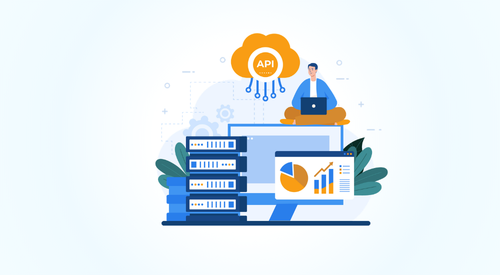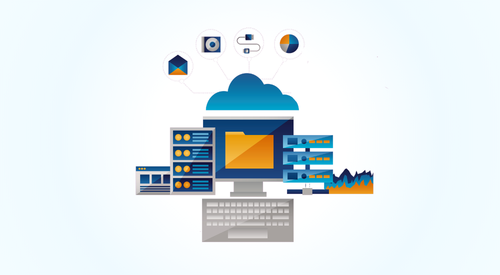

As the financial landscape grows increasingly complex and interconnected, the ability of banks to weather various economic storms becomes paramount. Risk processes such as stress testing acts as a reality check, offering a systematic approach to identify and quantify risks that may not be evident in standard risk assessments. As the banking industry embraces digital transformation, a shift to cloud-based infrastructure further enhances stress testing capabilities, enabling more comprehensive assessments that align with the dynamic demands of the financial landscape. Here we will take a look at how cloud transformation in banking is enhancing resilience and security for the financial industry.
Secure your future in banking with the Niveus expertise
Stress testing in banking involves subjecting financial institutions to hypothetical adverse scenarios to evaluate their stability and resilience. It’s a critical tool for identifying vulnerabilities and informing decisions to ensure regulatory compliance and financial well-being. Yet, it comes with its own challenges, especially with the more traditional methods.
Challenges of Traditional Stress Testing Methods
The challenges in traditional stress testing methods underscore the need for more advanced and agile solutions. Here are a few of the limitations posed by traditional stress testing approaches.
Resource constraints in conventional computing setups: Traditional stress testing methods often struggle with limited computational resources available in conventional computing environments. These setups may lack the processing power required to run complex simulations of various economic scenarios simultaneously. As a result, banks might be restricted in their ability to simulate intricate stress scenarios and assess their impact comprehensively.
Difficulties in conducting frequent and thorough stress tests: Conducting stress tests manually or with limited computing resources can be a time-consuming and resource-intensive process. This can lead to challenges in performing stress tests frequently and with the necessary depth. Banks may resort to simplifying assumptions or conducting tests on a smaller scale due to these constraints, potentially overlooking critical risk factors that could emerge in more complex scenarios.
Possible inaccuracies stemming from limited data processing capacity: The constrained processing power of traditional systems can lead to compromises in data processing and analysis. Stress tests require significant computational capabilities to process vast amounts of data in real time. In traditional setups, data processing may be slower and less dynamic, potentially resulting in delayed or incomplete analysis. This could introduce inaccuracies into stress test results, as well as hinder the ability to respond swiftly to emerging risks and challenges.
Cloud Transformation In Banking: Impact on Stress Testing
Cloud transformation in banking can play a huge role in propelling business into the future. With the latest advancements in technology, cloud transformation can bring multiple benefits for businesses looking to stay ahead of the curve.
Empowering Banks with Cloud Computing: Cloud computing has emerged as a game-changer for banks, revolutionizing stress testing methodologies and capabilities. At its core, cloud computing involves accessing and managing data and applications over the internet, offering a host of advantages that are particularly relevant to stress testing.
Harnessing Scalability and Computational Power: One of the standout features of cloud infrastructure is its unparalleled scalability. Banks can easily scale up resources during stress tests, ensuring that even the most complex simulations are executed efficiently. This surge in computational power enables banks to run simulations that mirror real-world scenarios with higher accuracy, ultimately yielding more insightful results.
Elasticity and On-Demand Resources: Cloud technology introduces the concept of elasticity, a dynamic resource allocation mechanism. During stress tests, banks can instantly tap into additional computing resources on-demand, allowing them to analyze vast datasets and intricate models in real time. This elasticity eliminates the traditional limitations of in-house hardware, ensuring that stress testing is not hindered by resource constraints.
As banks navigate the intricacies of stress testing in an ever-evolving financial landscape, cloud computing stands as a transformative tool that enhances their resilience. By leveraging its advantages – from scalability to on-demand resources – banks can conduct stress tests with unprecedented accuracy, frequency, and depth, ultimately fortifying their risk management strategies and positioning themselves to navigate uncertainties with confidence.
Addressing Data Privacy and Security Concerns
Safeguarding Data Integrity in Stress Testing Simulations: Data security is paramount, especially in stress testing where sensitive financial information is involved. Ensuring the integrity of data during simulations is crucial to maintain accurate results and informed decision-making. Robust security measures are essential to prevent unauthorized access, data breaches, and potential distortions of stress test outcomes.
GCP’s Commitment to Compliance and Data Protection: Google Cloud Platform (GCP) exemplifies the cloud industry’s dedication to compliance and data protection. GCP offers a range of cloud transformation services including security features such as encryption, access controls, and compliance certifications, aligning with regulatory standards to safeguard sensitive financial data. Banks can leverage GCP’s secure infrastructure to conduct stress tests with confidence, knowing that their data is in capable hands.
Strategies for Ensuring Confidentiality and Data Integrity: Banks must adopt a multi-faceted approach to maintain confidentiality and data integrity during stress testing. This includes robust encryption of data at rest and in transit, implementing strict access controls to limit data exposure, and regular monitoring of data activity. Collaborating with cloud providers that specialize in financial services ensures that security protocols are aligned with industry-specific requirements, offering a robust shield against potential risks.
As stress testing evolves to capitalize on cloud capabilities, addressing data privacy and security concerns is non-negotiable. By prioritizing stringent security practices and partnering with reputable cloud providers like GCP, banks can confidently navigate stress testing while upholding data privacy, fostering trust among stakeholders, and fortifying their risk management strategies.
In conclusion, the synergy between cloud computing and stress testing opens new avenues for banks to fortify their resilience. Embracing these technological advancements with a Google Cloud Partner empowers banks to assess their preparedness with greater accuracy, enabling them to navigate uncertainties and challenges with confidence. As the financial landscape continues to evolve, the marriage of cloud and stress testing becomes a catalyst for a stronger, more resilient banking industry poised for the complexities of tomorrow.











